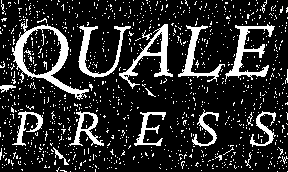|
|
 |
|
Zarma Folktales of Niger
translated by Amanda Cushman
ISBN: 978-0-9792999-8-8
Perfect Bound, $14.00
Publication Date: March 2010
5 x 7 inches, 95 pages plus introduction
FICTION/FOLKTALES
Individuals: Order directly from Asterism Books,
or Amazon.com.
Bookstores: Order through or Asterism Books.
|
|
| Zarma Folktales of Niger presents in English the folklore of the Zarma, a lesser-known tribe of West Africa. These tales run the gamut from teaching ethical and moral lessons to portraying tricksters to naming animals to farting contests to having fun. Humor and an emphasis on living justly bind the stories together. So far there have been few mentions of the Zarma people in Western texts, and little sign of their folklore, until now. While many English translations of African folklore exist already, they are mainly restricted to better-known cultures. Zarma Folktales of Niger captures the reality of the culture that created the tales, preserving what might otherwise have been lost from the oral tradition.
Unlike similar collections of African folklore, Zarma Folktales of Niger provides the cultural and historical context necessary to truly appreciate and understand these tales. The introduction outlines Niger’s history and describes the relationships of the Zarma to neighboring tribes, and the glossary explains common terms and expressions found in the stories. These tales will be of interest to children, general readers of folklore, and those interested in African culture, as well as to cultural anthropologists and ethnographers.
"An intriguing look at a culture little known to the West through the entertaining genre of folktales"
--Susan Rosenfeld, Resident Director, Boston University International Development Study Abroad Program in Niamey, Niger
"This is an interesting and concise translation (from the French) of some folktales of the Zarma from Niger, West Africa. It adds to our understanding of West African society and the West African view of the world. The Zarma have traditionally been underrepresented in the folklore literature so this is a welcome publication. The introduction provides a solid context for understanding the tales, and the tales are fluidly translated and presented. A variety of subjects are covered in the tales. It would be useful in courses in African oral history, folklore and society. It should also interest anyone with an interest in folklore in general and Arrican tales in particular."
--Dr. Andrew F. Clark, Professor of African and Global History, UNC Wilmington
|
|
|
From Zarma Folktales of Niger...
From the beginning of the story The Hyena and the Hare
One day, all the wild animals decided to plant a field of millet. They cleared the land, plowed it, and seeded it when the first rains fell. They plowed and weeded it at just the right time to produce a good harvest and filled a large granary with the millet. Then, a meeting was convened.
“We’ve harvested all we can before going on exodus,” said one animal to the rest. “At the first rain of next year, we’ll all return home and divide up our harvest.”
So it was said, so it was done.
After everyone had left, the hare moved in next to the granary with his family. From time to time, he took some heads of millet and gave them to his wives, who pounded them. Every time he took some, the hare searched for hyena dung to fill in the space. He continued his thefts until all the millet had been eaten.
The first rain fell, and all the animals returned home. The clever hare did not appear immediately. Once everyone else had arrived, he told his wife to pour water over his whole body. Then he ran to join his friends.
“Oh! Brother, you have traveled much,” they exclaimed. “Where were you?”
“I was in Haway, Safay, and Sasabay, on the way to Bargay, Hinay, and Dwayay.”
“You really have been all over. No wonder you’re sweating so much.”
“Open the granary!”
To everyone’s great surprise, there was only one head of millet left. The granary was full of hyena excrement. They all turned and looked at the hyena in astonishment.
“The hyena gobbled up all the millet.”
“It wasn’t me, I swear.”
...
|
© Quale Press, 2010. Receive information on Quale Press books.
Terms for Booksellers.
|
|
|
